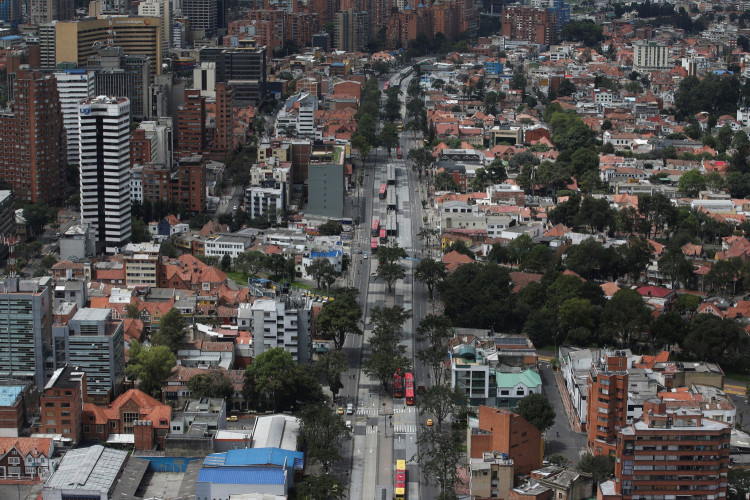The United States and Colombia reached a last-minute agreement Sunday, narrowly avoiding a trade war after Colombia agreed to accept deportation flights carrying migrants. The resolution followed days of escalating tensions, with the White House threatening punitive tariffs and sanctions unless Colombia complied with U.S. immigration demands.
In a statement, the White House announced that Colombia had "agreed to all of President Trump's terms, including the unrestricted acceptance of all illegal aliens from Colombia returned from the United States, including on U.S. military aircraft, without limitation or delay." The agreement prompted Washington to suspend plans for a 25% tariff on all Colombian imports, which would have increased to 50% within a week if the impasse continued.
The standoff began when Colombian President Gustavo Petro refused to allow two U.S. military aircraft carrying deported migrants to land, citing concerns over the treatment of deportees. "We are the opposite of the Nazis," Petro wrote on social media, criticizing the deportations and emphasizing that migrants should not be treated "like criminals." He offered to facilitate their return on civilian flights, including his presidential plane, to ensure what he called a "dignified return."
The disagreement escalated swiftly. In response to Petro's refusal, the Trump administration drafted measures that included steep tariffs, visa restrictions on Colombian officials, and enhanced inspections of Colombian cargo and nationals at U.S. borders. The State Department also suspended visa processing at the U.S. embassy in Bogotá.
Petro, initially defiant, warned of retaliatory tariffs on U.S. goods, declaring that Colombia would not be intimidated. "Your blockade does not scare me, because Colombia, besides being the country of beauty, is the heart of the world," Petro posted online. The clash, however, ended with a reversal by Bogotá late Sunday, as the Colombian government confirmed it would comply with U.S. demands.
"We have overcome the impasse with the U.S. government," Colombian Foreign Minister Luis Gilberto Murillo said in a statement. He added that Colombia would guarantee "decent conditions" for deported citizens and had prepared the presidential plane to receive those stranded by the dispute.
The stakes of the confrontation extended beyond immigration policy. Colombia is the third-largest U.S. trading partner in Latin America, with two-way trade totaling $33.8 billion in 2023, according to the U.S. Census Bureau. A trade war could have severely impacted Colombia's economy, which relies on access to the U.S. market for about a third of its exports-equivalent to 4% of its GDP, according to UBS Global Wealth Management's Alejo Czerwonko.
The diplomatic standoff serves as a warning to other nations about the Trump administration's hardline immigration policies. Trump has made mass deportations a centerpiece of his agenda, signing executive orders last week to expedite immigration enforcement. He also deployed U.S. military aircraft for deportation flights, a practice that has drawn criticism internationally. On Friday, two such flights carried deported migrants to Guatemala, and two more landed in Honduras.
Trump defended his actions, emphasizing the need for international compliance. "We will not allow the Colombian Government to violate its legal obligations with regard to the acceptance and return of the criminals they forced into the United States," he wrote on Truth Social.
While the agreement with Colombia has temporarily averted a broader conflict, it highlights the challenges posed by Trump's aggressive approach to immigration enforcement. Similar tensions have arisen with other nations, including Mexico and Brazil, over deportation flights and the treatment of deportees. Brazil condemned what it called the "degrading treatment" of its citizens on a recent U.S. deportation flight, where handcuffed passengers reported mistreatment.
The use of military aircraft for deportations has also sparked controversy. Although the U.S. has previously relied on commercial charters for such operations, the Trump administration's decision to involve the military represents an escalation. The White House has framed this as a necessary measure to enforce immigration laws and pressure foreign governments to cooperate.
Despite the resolution, questions remain about how sustainable such hardline tactics will be in the long term.




